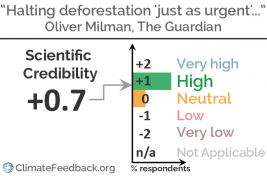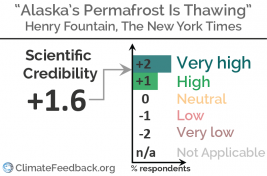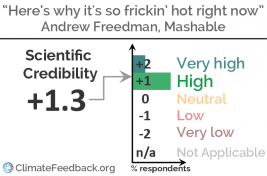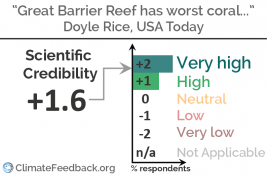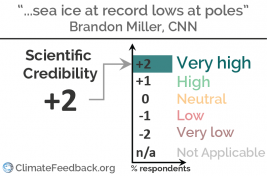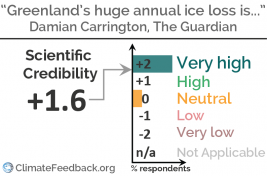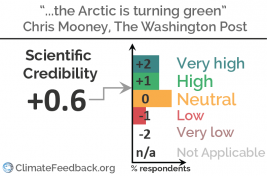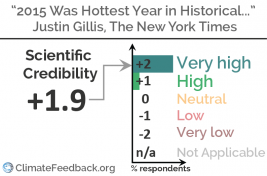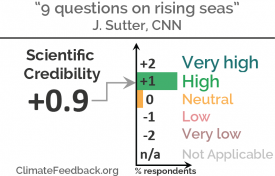.
Articles tagged as: Unbiased definition
Guardian story conveys statement by scientists stressing role of deforestation in climate change
in The Guardian, by Oliver Milman
“The article correctly links estimates of current carbon dioxide emissions from land use and land cover change with fairly conservative estimates for potential carbon sequestration embedded in “natural climate solutions” as part of the climate mitigation strategy to avoid 1.5°C warming.
Land-use and land-cover change is responsible for roughly 10-15% of total global carbon dioxide emissions. Forest management, reforestation, and afforestation where appropriate, is part of the climate mitigation portfolio assessed by Integrated Assessment Models used in the IPCC process.”
— 09 Oct 2018
New York Times accurately assesses the state of Alaskan permafrost
in The New York Times, by Henry Fountain
“The article is accurate in its descriptions of the physical and ecological processes that are behind permafrost changes. It also does a good job of getting across the nature of the work of actual scientists working in the field, what they are doing and why they are doing it.”
— 24 Aug 2017
Analysis of “Here’s why it’s so frickin’ hot right now”
in Mashable, by Andrew Freedman
“a nice summary of the current warm events in the bigger context of climate change. I caution against using a single month of data to support claims about climate change impacts on extremes, but the discussion about record highs outpacing record lows is a good one and provides strong evidence for influence of global warming on regional weather.”
— 28 Feb 2017
Analysis of “Australia’s Great Barrier Reef has worst coral die-off ever”
in USA Today, by Doyle Rice
“This article is mostly accurate … the frequency of massive bleaching events is increasing, will continue to increase in the near future, and these events do not need to occur annually to kill the reef. The variability of El Niño Southern Oscillation on top of the background warming trend of surface temperatures means that we will exceed the bleaching thresholds more frequently.”
— 30 Nov 2016
Analysis of “Amid higher global temperatures, sea ice at record lows at poles”
in CNN, by Brandon Miller
“Well outlined and balanced article, describing the evident link between low sea ice and climate warming and the melt-albedo feedback, but also mentioning the role of weather and short-time variability.”
— 24 Nov 2016
Analysis of “Greenland’s huge annual ice loss is even worse than thought”
in The Guardian, by Damian Carrington
“I find the headline accurate and supported by the article. The article explains the novelty and impact of the research accurately for the general readership and in particular the context provided from the scientists works really well in this regard.”
— 26 Sep 2016
Analysis of “Thanks to climate change, the Arctic is turning green”
in The Washington Post, by Chris Mooney
“The article reports about recent evidence that terrestrial ecosystems are ‘greening’ in response to human activities, principally the increasing atmospheric CO2 concentration. The author presents this ‘greening’ as a new finding while annual global carbon budgets have reported that about 25% of the fossil-fuel emissions have been taken up by the biosphere since the 1960s. Nothing is fundamentally wrong in the article but it is organized in a somewhat misleading way”
— 04 Jul 2016
Analysis of “2015 Was Hottest Year in Historical Record, Scientists Say”
in The New York Times, by Justin Gillis
The article accurately covers the news that the global surface temperature of the planet in 2015 has set a new record, well above any previous measurement.
— 21 Jan 2016
Analysis of “9 questions on rising seas”
in CNN, by John Sutter
“This article does a very good job at presenting the main aspects of sea level rise and how it will impact coastal regions…”
— 12 May 2015

